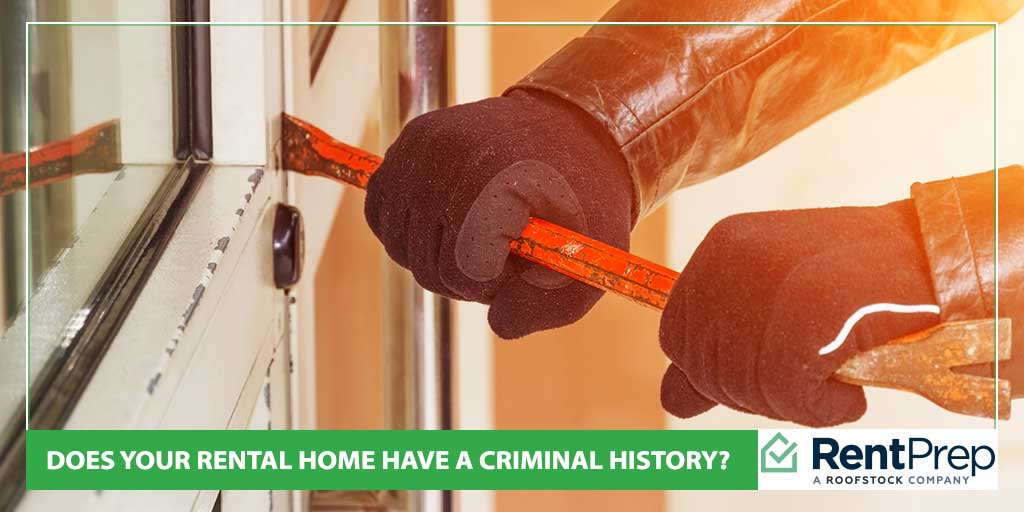
When I rented my first apartment, I didn’t consider much beyond living space and monthly rent. It was a tiny basement apartment behind a business that closed at 5 pm, with a parking lot on one side and an empty lot on the other. Six months into my tenancy, I came home to a broken front door and a ransacked home.
I didn’t have many belongings worth taking, but the few that I did were gone. When the local police arrived to take a report, the first thing they said was that they had been to my apartment for several other break-ins with previous tenants.
It hadn’t occurred to me to ask the landlord about the safety and criminal history of the unit, but I learned the hard way that the location of my apartment was ideal for a quiet break in, despite the fact that the building was on a busy main street across from a college campus.
I was able to use the situation to get out of my lease early and moved to safer lodgings, but I never again approached a rental situation without carefully considering the location (whether or not the area appeared safe) and doing some research on the criminal history of the place.
Feeling secure in your home is one of the most important factors you should consider when looking for a rental and there are ways to assess potential options.
- If a prospective rental is far below market price, you should be suspicious and do some research on the unit as well as the neighborhood before signing a lease. You might just be very lucky in a depressed housing market, but there could also be a more sinister reason.
- Be upfront and ask your landlord about crime in the area and the criminal history of the unit itself. You can even ask if the rental home has been the focus of any police reports. While not every state requires a landlord to disclose such history, it may help if they are willing to explain a situation that you are likely to discover on your own, especially if it gives them a chance to detail what new measures they have taken to ensure the safety of their tenants. A potential rental might be safer ever because of increased security, but you will not know that if all you read is the criminal report.
- Assess any prospective rental homes for their break-in or crime potential. For instance, doors with windows set into them can be easily broken and used to access the lock. Basement apartments, rear entries, secluded parking garages, and poorly lit hallways may not necessarily knock a place off of your list, but it should also make you consider whether the extra safety precautions you will have to take are worth the smaller rent payment.
- Start by doing a basic online search for the neighborhood and if nothing pops up immediately, you can delve a little deeper by researching police reports for the specific address or building. There are a variety of websites that will do the research for you if you type in the location in question and pay a small fee. Other sites will also report whether a death (suspicious or natural) has occurred in a residence for those that are sensitive to such things.
- If you want a more personal touch, you can approach some of your potential neighbors as a way to get a sense of the safety in the neighborhood or complex. Ask if there have been any recent tragedies or unusual activities in the area lately and make sure that you are friendly and non-judgmental in order to get a good response.
- Most states require landlords to disclose whether a unit has been previously used as a meth lab as well as showing certified proof that it has been properly cleaned, repaired and is fit for habitation again. You can purchase an inexpensive meth residue kit and test any unit for yourself if you are unsure about it or doubt the landlord’s word about the place’s criminal history.
For more information on how to handle criminal activity on rental property, check out this video:
How to Get Police Reports on Apartments
This is pretty simple. You can call the local police department (or Sheriffs) and request them to pull criminal records on an address. Keep it to the last three years so they’re not digging through too many records. This is all public information, so you should be able to get what you’re looking for quickly.
How to Tell If Your Apartment Has a Criminal Past

There could be some tell-tale signs that your apartment has a criminal past.
When you go to check it out, look for signs of damage from previous break-ins. Is there damage around the deadbolt or perhaps an over the top security system in place.
While it can feel secure having a top of the line security system in place, there might be a reason for it.
Trulia has a crime map that if you search “Trulia Crime Map” it will populate your local crime statistics. This can be helpful in assessing your property.
In conclusion…
While no rental home is completely safe, there are certain steps that responsible tenants can take to figure out the criminal history of a place, what the landlord knows or is willing to share, and what can be done to keep both people and possessions as safe as possible.

